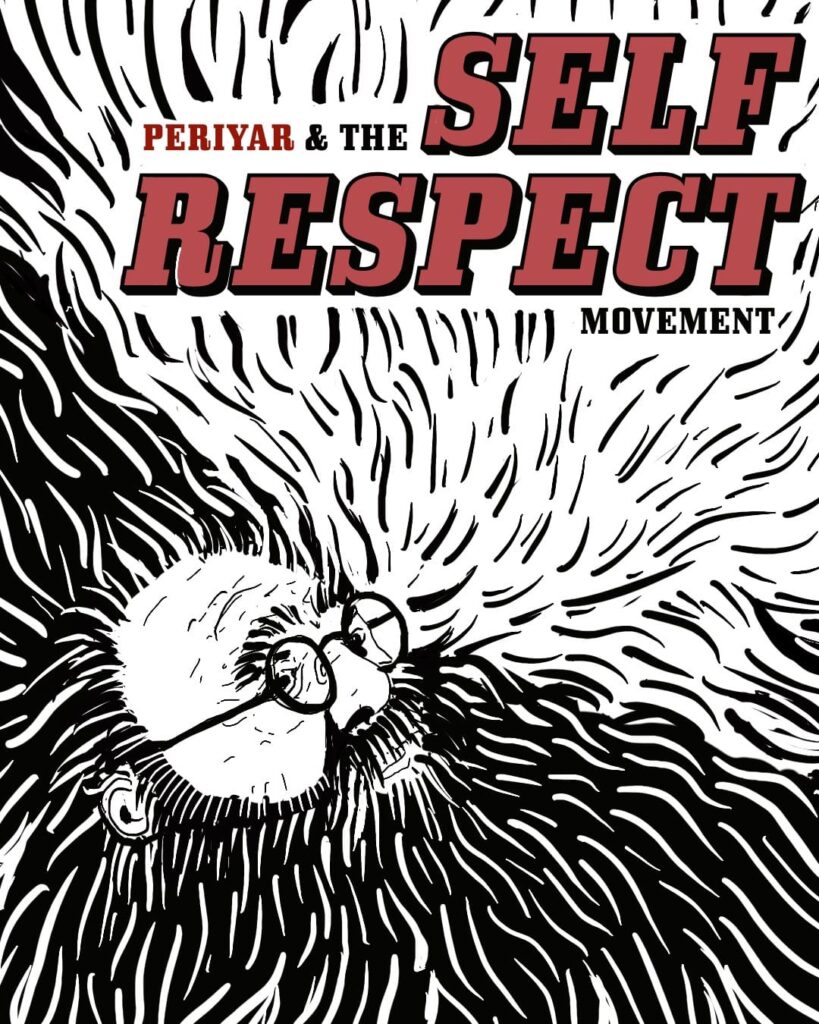Periyar valued self respect as important as life and its protection a birthright, not swaraj. His movement changed the face of contemporary Tamil politics forever.

Illustration by Ajinkya Dekhane
Erode Venkatappa Ramasamy, revered as Thanthai Periyar, was one of the leading revolutionary leaders of the 20th century who rebelled against the Brahmanical hegemony in India with his beliefs of rationalism, freedom and equality and paved the way for the self-respect movement in Tamil Nadu, the ideals of which can still be seen in contemporary Tamil politics today.
Thanthai Periyar was born on September 17, 1879 in Erode, Coimbatore of then Madras presidency. Periyar worked as a social activist in his early life where he dedicated most of his time to the chairmanship of the Erode Municipality, actively participating in the Indian freedom movement and spreading the message of the Swadeshi movement which was gaining popularity at the time. In 1919, he would join the Indian National Congress to play a bigger part in the Indian freedom movement.
As a part of the Congress Party, Periyar led many demonstrations against British imperialist rule, for which he was arrested on many occasions, including during the Non-Cooperation movement of 1920. Periyar was then on the front lines of the anti-liquor movement along with his wife and sister, who led protests to shut down Toddy shops. Periyar would also cut down over 500 of his own coconut trees in support of the movement.
After being elected as the President of the Madras Presidency Congress in 1922, Periyar would begin advocating for the representation of the depressed classes in education and jobs. Despite his strong efforts to bring change within the Congress Party, his attempts to secure reservations for lower castes were thwarted by the party leadership which consisted almost entirely of Brahmins and other upper-castes. After making a sixth failed attempt to pass a resolution for the upliftment of lower castes, Periyar left the Congress Party in 1925 due to the overwhelming dominance of Brahmins and their reluctance to reservations.
It was at this time that Periyar started the Self Respect movement that is synonymous with his name today. Having seen the influence of the Brahmins in the Congress Party, Periyar decided to leave the party and start his own movement that would centre the rights of Dalits, Adivasis and women. The Self Respect Movement aimed at abolishing the oppressive structure of castes and gender that made humans superior and inferior by birth, providing the oppressed classes with equal rights and a life of dignity and respect, which was denied to them by Brahminism.
Periyar believed that the Self Respect movement was the only means to achieve true freedom, and that many nationalist leaders of the time did not believe in self respect of individuals. He felt that political freedom which Nehru and Gandhi strived for did not ensure freedom of the individual. Periyar valued self respect as important as life and its protection a birthright, not swaraj. He described the movement as Arivu Vidutalai Iyakkam, which translates to a movement that aims to liberate the intellect. This could seen in the Self Respect marriages too which we will discuss in detail during a later piece in the series.
During the first conference of the Self Respect movement in 1929, Periyar said laid down the principles of the Self-Respect Movement to be no kind of inequality among people; no difference such as rich and poor in economic life; men and women to be treated as equals in every respect without differences; attachments to caste, religion and country to be eradicated from society with a prevalent friendship and unity around the world; with every human being seeking to act according to reason, understanding, desire, and perspective, and shall not be subject to slavery of any kind or manner.
Periyar finally succeeded in ensuring representation of depressed classes when the British government passed GO No 1129 on 15th December 1928 ensuring communal representation to all sections of society based on their proportionate population. The movement of self respect and crusade against inequality laid the foundations of the Dravidian movement which can still be seen in Tamil Nadh today, which is the only state with 69% reservation secured for depressed classes, the highest in the country, where leaders such as Udhaynidhi Stalin can call for the abolition of untouchability in Sanatan Dharma thanks to the efforts of Thanthai Periyar in sowing the seeds of rationalism and self respect in the Tamil soil.
